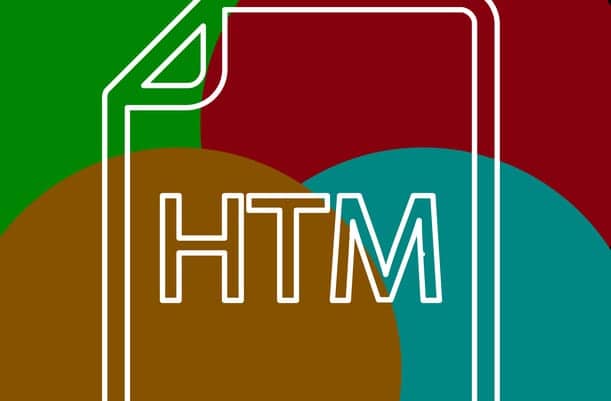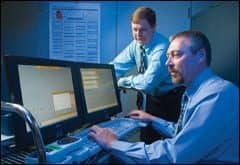By Chaunie Brusie
Don Allen, CHTM, is the regional director of HTM for Universal Health Services, Inc. (UHS), where he has been employed for two years in the company’s Sherman, Texas, office. But the HTM leader is no stranger to the biomed field—instead, he’s a 30-year veteran of the industry.
Below, Allen, who was nominated for the “Heroes of HTM” designation by a colleague, shares with 24×7 Magazine what he deems to be the industry’s top challenges and what advice he would give other leaders in HTM. Don’t miss out.
A ‘Lucky’ Start
Allen calls his entrance into HTM a “lucky” happenstance. While he was in college, he had planned to program or repair computers and submitted what he calls a “very crappy” resume to a college job board listing. “I had no idea who [respiratory equipment manufacturer] Puritan-Bennett was, or what they did,” he admits. “But I thought that medical equipment repair sounded pretty neat, so I applied.”
Fortunately, that lucky start and self-professed less-than-stellar resume worked out well for him. Following the completion of his electronics degree from DeVry University, his employers sent him to receive technical training in ventilators, anesthesia equipment, monitors, diagnostic ultrasound devices, hematology analyzers, chemistry analyzers, coagulation analyzers, defibrillators, and bi-PAPs, as well as cross-training on many other medical devices.
Today, Allen says he stays knowledgable about industry innovations via educational resources, such as 24×7 Magazine, as well as by attending industry conferences like AAMI Exchange. And, of course, he keeps up by talking to all his friends in the industry.
Over the course of his career, Allen has come to enjoy many different aspects of his job, from solving difficult problems to forging friendships with his clinical staff. “Knowing that what we do directly impacts patient care—I think the combination feeds me,” he says. “Thinking back, the same things that made it rewarding as a technician make it rewarding in my current role. Although I’m not solving problems on equipment, I’m solving problems that our technicians, leaders, or clinical staff face.”
Leading through Example
In Allen’s eyes, a leader should possess the following characteristics: ownership, integrity, accountability, the ability to make good decisions, dedication, empowerment, passion, and stellar communication skills. He details how he recently purchased the book, “Extreme Ownership” by Jocko Willink and Leif Babin for his directors—a resource he wholeheartedly endorses.
The biggest takeaway from the book, he says, is that just embodying leadership characteristics isn’t enough. HTM teams—and their leaders, in particular—must take ownership of their departments. “For me, [‘Extreme Ownership’] reminds me that I have a responsibility to apply those leadership traits in a positive way,” he says.
As a leader, Allen says he’s incredibly proud of his team of directors and technicians. He notes that the directors especially are a great resource for the HTM technicians on the team, providing not only direction and solution, but also an endless drive to improve. “They want to succeed and want their team to succeed,” he says. “They teach, they listen, [and] they execute.”
What advice does Allen have for HTM leaders? Well, take your pick from any of the following:
- Be yourself.
- Acknowledge your shortfalls and address them.
- Own your role and responsibilities, as well as your mistakes.
- Talk to your team—not at them. “I remind our leaders and their teams to: ‘Listen to understand. Don’t listen to reply,’” he notes.
- Hold your team accountable.
- Hire the right people; don’t settle for the wrong ones.
- Always keep learning.
For Allen, one of the most influential things he can do as a leader actually involves doing less. “I’m proud of the fact that my oversight is now minimal because my technicians do such a great job,” he says. “They own the repair, their customer, their vendor, and their responsibilities,” he adds. “All of them—working together and executing for the safety of our patients—that’s what I’m most proud of.”
Coming Full Circle
If you ask Allen what makes a hero in HTM, he has one simple answer: “Well, it’s certainly not me!” he quips. He chalks up his success to the fact that his facility’s technicians and directors execute and execute well.
“When I think ‘Hero of HTM,’ I think of that technician or director who thinks outside the box and is able to somehow, miraculously, perform the impossible,” Allen says. “That could mean repairing the unrepairable, repairing when the staff is in dire need and the patient is on the table, or getting a vendor to replace a device that is constantly down.” After all, he says, to his customers, such actions are heroic.
Allen also looks to the heroes, who, in his eyes, have advanced the HTM profession— citing industry leaders such as Binseng Wang, George Mills, Heidi Horn, David Dickey, Carol Davis-Smith, Christopher Nowak, Matthew Baretich, Stephen Grimes, Paul Kelly, David Braeutigam, and Malcom Ridgeway.
“These professionals have been long-standing members of AAMI, ACCE, and other professional organizations, serving in roles that benefit us all,” he notes. “They have led numerous committees and given countless presentations to thousands of professionals just like me. It is their work, knowledge, and dedication that has shaped our profession and helped us advance to our current state.”
He believes these heroes and the HTM professionals who follow in their footsteps will also be instrumental in helping to overcome some of the industry’s biggest challenges, such as recruiting new blood to the field. “As we are all aware (or should be), the lack of graduates or new candidates entering our field is far less than what is necessary to fill our open positions,” he says. “I’ve had positions open for extended periods, with very few resumes from experienced, stable candidates.”
Allen sees several factors driving the lack of qualified candidates, including an insufficient number of HTM programs. “Good, experienced leaders are even more difficult to find,” he notes, somberly.
Industry challenges aside, when he’s not working or leading his HTM team, Allen enjoys spending time with his wife, Jolyn, and his adult sons, Josh and Zach. Always the type to think outside of the box, the sports fan challenges himself outside of work with invigorating outdoor activities, such as riding his four-wheeler and participating in Tough Mudder obstacles races. Up next for Allen? A Spartan Race.
The adventure-seeker says from a career standpoint, he’s had a great ride so far. Calling himself “lucky” to have worked for some great hospital systems, as well as what he deems a “fantastic” OEM, Allen says it’s the people he’s encountered along the way who have affected him most. He’s fortunate to call many of them friends, he adds, thus allowing him to get to know those he calls the “true heroes” of his profession.
And despite the industry’s staffing challenges, Allen has high hopes for the next generation of HTM heroes. “We have young, dedicated people that are excited to make their mark on our profession,” he says. “I’m excited to see where the future leads us and honored at the possibility of having an impact on those young professionals.”
Chaunie Brusie is associate editor of 24×7 Magazine. Questions and comments can be directed to chief editor Keri Forsythe-Stephens at [email protected].






